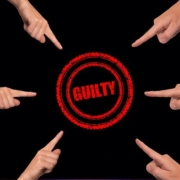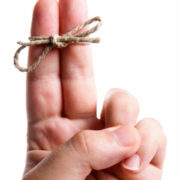What Is Your Inner Critic And Where Did It Come From?
To answer that, here is a story for you.

The Story
There was once a dreadfully wicked hobgoblin. One day he had a simply marvelous idea. He was going to make a looking glass that would reflect everything that was good and beautiful in such a way that it would look dreadful or at least not very important. When you looked in it, you would not be able to see any of the good or the beautiful in yourself or in the world.
Instead, this looking glass would reflect everything that was bad or ugly and make it look very important. The most beautiful landscapes would look like heaps of garbage, and the best people would look repulsive or would seem stupid. People’s faces would be so changed that they could not be recognized, and if there was anything that a person was ashamed of or wanted to hide, you could be sure that this would be just the thing that the looking glass emphasized.
The hobgoblin set about making this looking glass, and when he was finished, he was delighted with what he had done. Anyone who looked into it could only see the bad and the ugly, and all that was good and beautiful in the world was distorted beyond recognition.
One day the hobgoblin’s assistants decided to carry the looking glass up to the heavens so that even the angels would look into it and see themselves as ugly and stupid. They hoped that perhaps even God himself would look into it! But, as they reached the heavens, a great invisible force stopped them and they dropped the dreadful looking glass. And as it fell, it broke into millions of pieces.
And now came the greatest misfortune of all. Each of the pieces was hardly as large as a grain of sand, and they flew about all over the world. If anyone got a bit of glass in his eye there it stayed, and then he would see everything as ugly or distressing. Everything good would look stupid. For every tiny splinter of the glass possessed the same power that the whole glass had!
Some people got a splinter in their hearts, and that was dreadful, too, for then their hearts turned into lumps of ice and could no longer feel love.
The hobgoblin watched all this and he laughed until his sides ached. And still the tiny bits of glass flew about…
Adapted from “The Snow Queen,”by Hans Christian Andersen
Why This Story?
The resonances of Andersen’s story go far deeper, providing a way of looking at a parent’s mental illness, alcoholism or substance addiction, poor parenting skills, or outright cruelty that can make perfect sense to an eight-year-old child’s mind while confirming her worst suspicions about the world. What follows is the creation of an adult who struggles, and has their innocence stolen.
When a child is confronted with the unspeakable, that a parent simply does not care about them, appear to want them, or even worse, engage in outright abuse, they do the (seemingly) only logical thing: assume it is their fault. If they can only be better, make good grades, never cause any trouble, provide extra help around the house or with siblings, walk on eggshells…
The Inner Critic
This is how the Inner Critic becomes like the bit of mirror that makes us see a distorted picture. It is that inner voice that criticizes us and speaks about us in a disparaging way—and tells us we will never be enough. It can cause you to push for perfectionism in the everlasting hope that if perfect, you will finally be enough.
It makes everything look ugly. Most of us are not even aware that it is a voice or a self speaking inside of us because its constant judgments have been with us since early childhood and its running critical commentary feels like a natural part of ourselves. It develops early in our lives, absorbing the judgments of the people around us and the expectations of the society in which we live. It most often develops in people who experienced a lot of childhood emotional and/or physical abuse. It was the child’s way of surviving, but it becomes unbidden faulty wiring in the adult world.
Your drive for perfectionism has become like unbidden faulty wiring in the adult world, causing you to seek your self-worth from the opinion of others.—Paqe Rutledge, LCSW
It is a supremely painful way to live.
Your inner critic is a pretty good ventriloquist. It will have you blaming everyone else for saying (or implying) all the negative stuff you are actually saying about yourself (while you ruminate). There are lots of us blaming ourselves in order to “protect” ourselves from outside criticism. You are not alone in this! This goes straight back to the painful rejection some experience from abusive or addicted parents. Sometimes we’ll even short circuit potential relationships in order to avoid our (faulty) forecast of pain in a failed relationship. Self sabotage at its finest.
Sometimes we’ll even short circuit potential relationships in order to avoid our pain in a future prediction of a failed relationship. This is self sabotage at its finest.—Page Rutledge, LCSW
You can learn that beating your imagined critics to the punch by criticizing yourself sooner and harder than anyone else would is not really helping, but rather acts to push you deeper into the quicksand of depression.
Instead, you can learn to listen to your inner critic as kind of distant early warning system, a helpful “heads up” rather than a broadside of self-loathing. You can reform that Inner Critic enemy into a potential ally rather than fighting it, albeit mostly internally.
Our Inner Critic is so negative and overbearing that it squelches our other, often best, inner selves—our other helpful parts. In managing the Critic, we don’t extinguish it. Instead we negotiate with it; ask it what it wants; what it’s afraid of. Once we know its fears, we can allay them, question the current evidence for the fears, and allow our more playful, and less judgmental, selves to come out.
If you need help with this, contact me here. You are worth this hard work; it can be truly life changing.
P.S. You can schedule online here by clicking the blue button.











